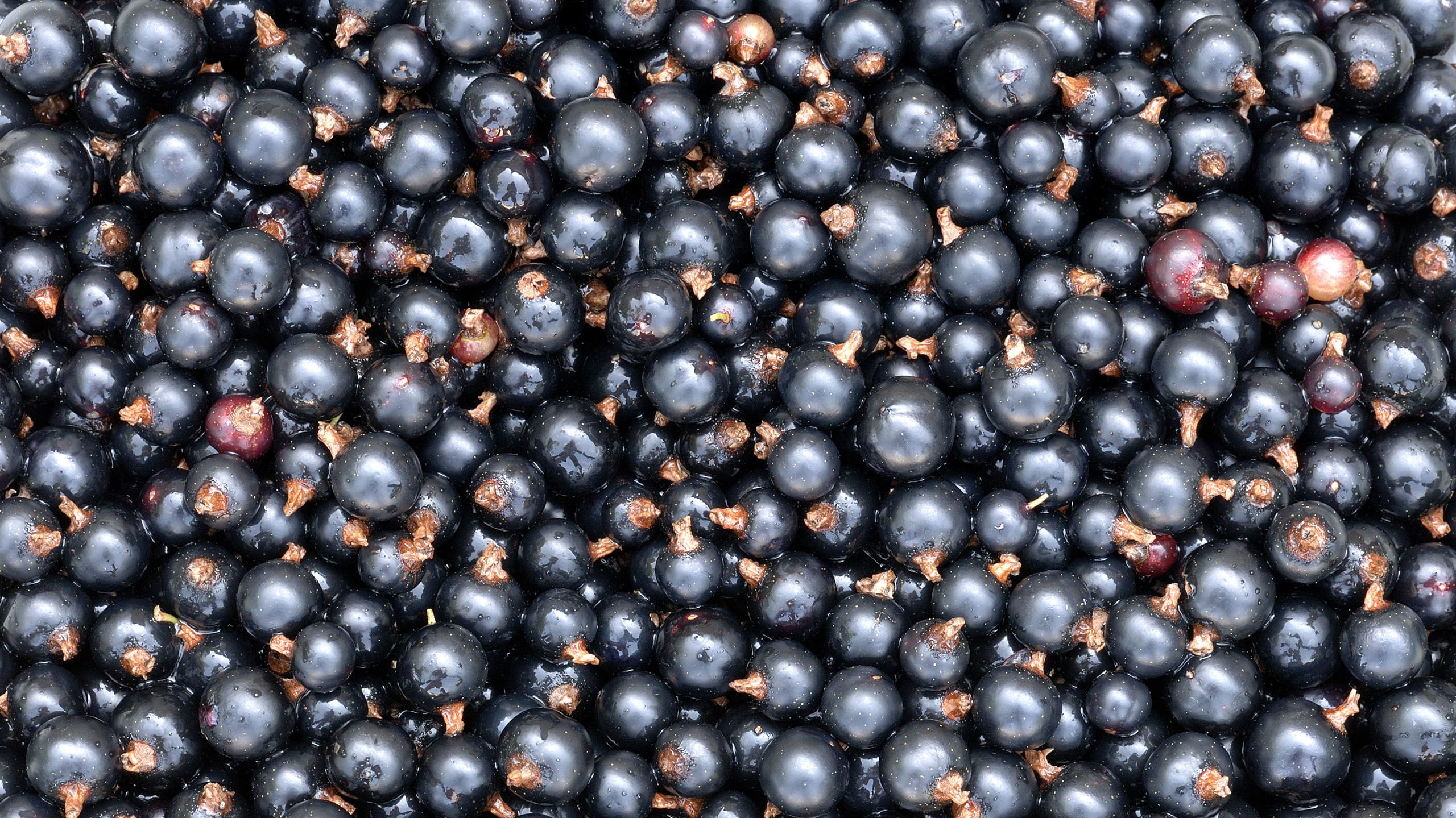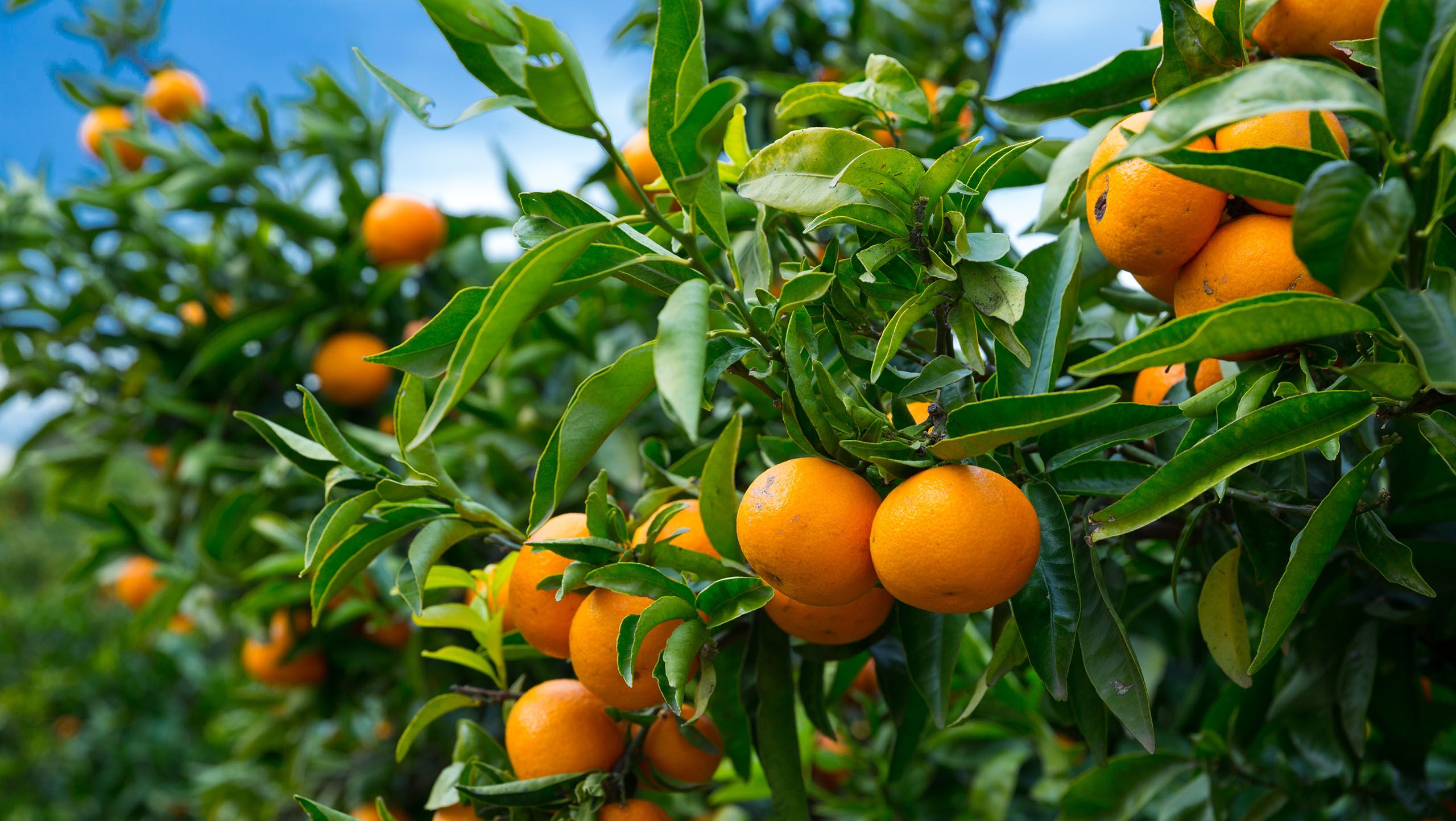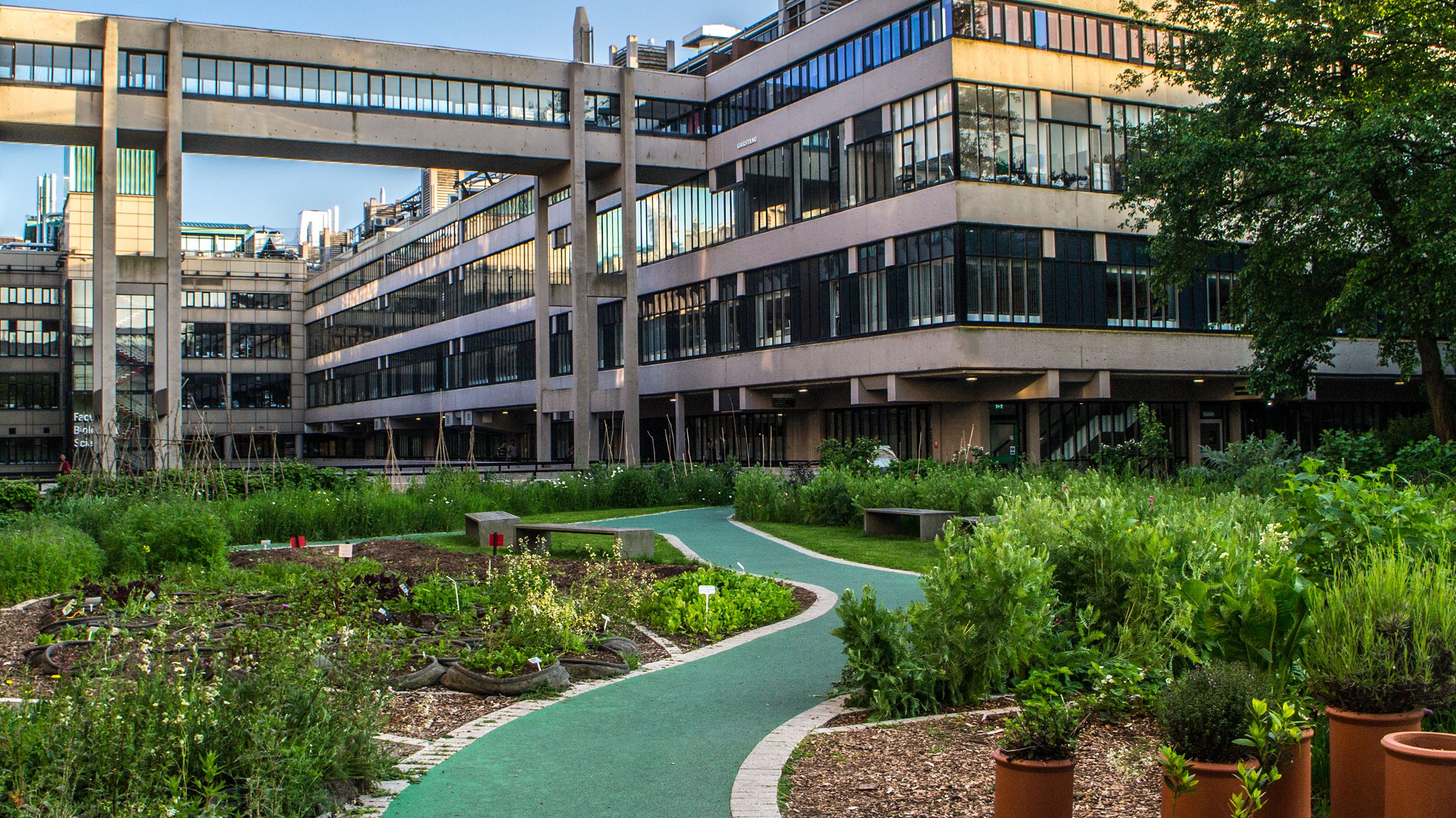From peel to appealing

How many times have you eaten a piece of fruit and thrown the peel into the bin without a second thought? But what if the inedible or commonly discarded parts of food were turned into products that are not only usable, but desirable? That was the mission of a group of researchers at the University of Leeds and their project partners.
Every year, a million tonnes of peel waste is generated from the mandarin canning industry in China alone, as well as a further 10 million tonnes of waste water.
“Mandarin peel is too acidic to be composted,” explained Richard Blackburn, Professor of Sustainable Materials in the School of Design at Leeds and co-founder of Keracol Limited, a spin-out company he set up with Professor of Organic Chemistry Chris Rayner to develop new sustainable products.
So unfortunately, it’s often incinerated, and that process is obviously hugely damaging for the environment.”
Waste on such a scale has always been a burning issue for Richard.
He has seen sustainability rise to the top of the global agenda over more than 20 years of working in this area and he now works alongside colleagues in academia and enterprise on research to apply sustainable principles in real-world contexts.
As China produces 60% of the world’s mandarins, Richard turned his attention to the problem of the waste pith and peel by working with local teammates and partners in the country on an intercontinental project with huge potential.
The idea? To create a range of products from peel and make use of the many small molecules, enzymes, organic acids, natural polymers, and essential oils contained in this plentiful by-product.
Dubbed Citrusafe, the project began when Professor Caroline Orfila, who was working at the School of Food Science and Nutrition in Leeds at the time, built a team to respond to an opportunity through the UK-China Agritech Challenge.
The aim was to address China’s development priorities to eliminate waste and improve food safety.
But first, it’s worth zooming out for a moment to look at the bigger picture – because the story of turning what we throw away into something luxurious and enticing is truly remarkable.
Extracting value in unexpected places

Take blackcurrants as an example.
14 billion are harvested in Britain every year, with more than 90% of them being used to produce the popular drink Ribena.
“After the fruits are pressed, what’s left is the skin,” Richard said. “The seeds are taken out to make blackcurrant seed oil, which is really valuable, but the skins are typically just waste.”
But now, Richard, Chris and their colleagues at Keracol, have discovered an exciting way of putting them to use.
“All my career, I’ve worked on the coloration of textiles,” Richard said. “Believe it or not, wool is not dissimilar to the hair on your head, so a lot of what we know about dyeing wool can be applied to human hair.
“So when I thought about blackcurrant skins, I realised there might be a great opportunity to get the pigments out of them… and several projects later, we developed a system that works really nicely for semi-permanent hair dyes.”
The success of this and similar research led to media coverage, which in turn led to more interest in Keracol’s work.
But it was at a networking event at the University where a conversation would spark the new partnership between Leeds and China.
“We were there showcasing what we can do and got talking to Professor Orfila and her team,” Meryem Benohoud, Technical Director at Keracol recalled.
Immediately, you could feel that shared sense of energy; big ambitions and common goals.”
By this point, Professor Orfila and her colleagues in the School of Food Science and Nutrition had already secured funding from the Biotechnology and Biological Sciences Research Council, Innovate UK and the Newton Fund for a collaboration with Zhejiang University in the northern city of Hangzhou.
Alongside Caroline were scientists like Associate Professor Dr Christine Bosch, whose research interests include bioactives – some of the naturally occurring chemicals within foods – and how they deliver the health benefits from eating fruits and vegetables.
Bioactives can inhibit inflammation and affect blood glucose regulation, so they can help limit the effects of chronic diseases such as cardiovascular disease,” Christine explained.
But to make a big impact, the Citrusafe project also needed industrial partners just like Keracol, and so a (dare we say) fruitful relationship was born.
“In the past, we tended to work with maybe one other company or one research lab, but suddenly we were working with Caroline’s team, Dr Qi Meng and colleagues in the School of Chemistry, other industrial companies both here and in China, and academics at Zhejiang,” Meryem continued.
The aim of the initiative, funded by UK Research and Innovation, was to turn both the canning waste water and the peel from mandarin production into a wide range of high-value products.
The research helped to develop pectin waste, which is a by-product from processing the peel, into compostable food-grade films for soft fruit cartons to help improve the sustainability of packaging in China’s growing home delivery market.
This part of the work involved a collaboration with Professor Francisco Goycoolea, from the School of Food Science and Nutrition, whose focus is on products that help foods maintain their structure and texture – known as gums and stabilisers.
“It was extremely rewarding to be part of this team and show that the recovered pectins from mandarin peels can be used as sustainable natural polymers in biodegradable food packaging and can help tackle the urgent need to reduce the use of synthetic plastic that pollutes the environment.”, Francisco commented.
“I have always been fascinated by polymers like pectins that display so many different functions in foods and other materials. Depending on how they are processed, different properties can be harnessed”.
The partnership between the industrial and scientific teams in China and the UK produced some fantastic results.”
At Keracol, Richard and Meryem were focused on using peels to create sustainable skincare products.
From nature to the lab

Through its skincare brands, Keracol is now selling the results of this pioneering research collaboration: exfoliators, antioxidant serums and soothing creams all made using extracts from mandarin peel.
“As a natural product chemist, I find peels fascinating,” Meryem said.
“Their job is to protect the fruit inside from bacteria, and they are very rich in compounds that are good for health and skincare because those same compounds help the fruit to withstand attacks from things like insects and the weather”.
To extract the beneficial active ingredients, the scientists soak the mandarin peels in a solvent that is then recycled and used for further extraction in the future.
“It’s a sustainable process with a significant added benefit,” Richard explained.
“Once we’ve extracted the peel, not only have we got the high-value ingredients that we need to make skincare products, but we’ve also removed the compounds that prevent biodegradation – meaning the waste peel at the end of our production process can simply be composted.”
For Christine, who spent her childhood on a farm in southern Germany, where as much food and animal feed as possible were grown on site, it’s been great to see the degree of collaboration involved in the Citrusafe project and her broader work at Leeds.
Christine and her colleagues dissected the waste from Keracol’s extraction of different types of mandarin and conducted tests on the flavonoids – naturally occurring chemicals within the fruit.
They were interested in how their properties could change the balance of bacteria within the mouth.
“I’ve been working with the School of Dentistry to better understand whether bioactives can improve dental health,” she said.
“And over the last few years, I’ve benefited from all the efforts to bring different departments at the University together, working with diverse areas such as Colour and Polymer Science in the School of Chemistry, Biology, Medicine and Psychology.”
For Richard, the project follows a lifelong love of science and experimentation.
“I’ve been interested in chemistry ever since I was young,” he said.
“We spent a lot of time at my grandparents’ house and I was always making and mixing potions in their bath.
“I remember that tinned mandarins were a frequent dessert option there in the school holidays, too – although I never could have expected that I’d end up researching them in so much detail decades later!”
Leading the way from Leeds

The Citrusafe project may have ended, but the work of the team at Keracol and the School of Food Science and Nutrition is far from over.
In fact, their passion knows no bounds, with plans for all kinds of other future research topics.
“Cosmetics can be a real minefield, but there’s so much potential for us all to make the products we use on our skin more sustainable and more ethical,” Richard explained.
“A lot of people choose products marketed as vegan in order to protect animals, and yet things can be labelled as vegan even if they aren’t based in nature at all and actually cause a significant degree of damage to biodiversity.
“I think our work with partners in China is a great example of how, right here from Leeds, we can bring academia and industry together to solve several problems in new ways: reducing food waste, creating attractive high-value products and meeting economic challenges at the same time.”
About the researchers
About Richard
Richard Blackburn is Professor of Sustainable Materials in the School of Design, researching sustainability, textile chemistry and textile coloration.
He is the co-founder of Keracol Limited, a company spun out of the University of Leeds.
Richard is Head of the Sustainable Materials Research Group at Leeds and was given the Freedom of the City of London in 2013 when he was made a Liveryman of the Worshipful Company of Dyers of the City of London.
About Christine
Christine Bosch is Associate Professor in Nutrition in the School of Food Science and Nutrition and Director of Postgraduate Research Studies.
Her research interests are in the health-promoting effects of dietary antioxidants and their mechanism of action.
About Meryem
Meryem Benohoud has a background in organic chemistry, with a BSc and MSc in Chemistry from the University Paris-Saclay and a PhD in Synthetic Organic Chemistry from the Institute of Natural Products (ICSN-CNRS France).
She gained further research experience in various areas of natural products, small molecules and green and sustainable chemistry during her postdoctoral projects carried out in Finland at the University of Jyvaskyla.
Meryem joined Keracol in 2013 and is now Technical Director. She has a keen interest in circularity and sustainability; making better use of resources is her driving force.
About Francisco
Professor Francisco M. Goycoolea received his PhD from Cranfield University and has worked as a research scientist at CIAD in Mexico, the University of Santiago de Compostela in Spain, and the University of Münster in Germany.
Since 2016, he has been a Professor for Biopolymers at the University of Leeds. His field of scientific expertise is Biopolymer Science and Food Nanobiotechnology.